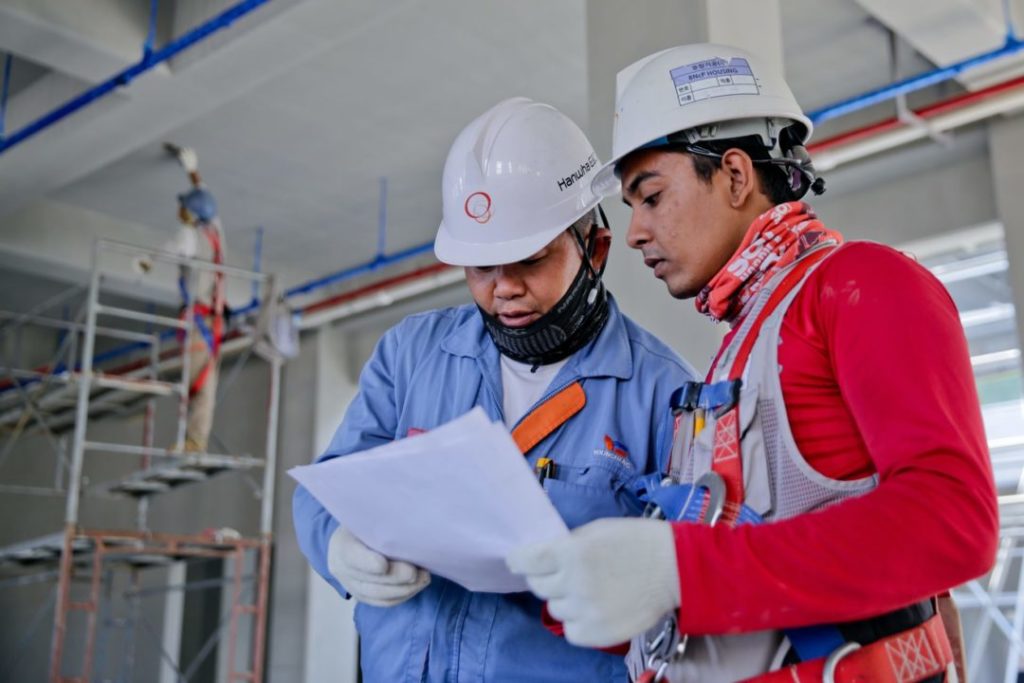
17
Jul
The Crucial Role of Internal Communications in Construction Companies
in Ideas
Comments
Effective communication is the lifeblood of any organization, and construction companies are no exception. In an industry as dynamic and complex as construction, where numerous stakeholders collaborate on projects, internal communications play a pivotal role in ensuring seamless operations, enhanced productivity, and a safe working environment. This article delves into the significance of internal communications within construction companies, exploring key benefits and best practices that contribute to their success.
Promoting Safety and Reducing Risks
Safety is paramount in the construction industry, where workers face numerous hazards daily. Clear and efficient internal communications enable the dissemination of crucial safety guidelines, updates on potential risks, and reminders about safety protocols. By fostering open lines of communication, construction companies can ensure that everyone within the organization is well-informed and prepared to mitigate risks effectively. Timely sharing of safety-related information enhances employee well-being, minimizes accidents, and contributes to a positive safety culture.
Collaboration and Teamwork
Construction projects involve multidisciplinary teams working together towards a common goal. Internal communications facilitate effective collaboration among various departments, such as architects, engineers, contractors, and subcontractors. Regular communication channels, including meetings, emails, and project management software, ensure that all team members are aligned, aware of project milestones, and equipped with the necessary information to execute their tasks efficiently. Strong internal communications foster a sense of unity, cooperation, and shared responsibility, leading to improved project outcomes.
Employee Engagement and Morale
Engaged and motivated employees are the backbone of any successful construction company. Effective internal communications provide opportunities for employees to voice their ideas, concerns, and suggestions, fostering a sense of belonging and ownership. Regular updates on company goals, project progress, and recognition of individual and team achievements help to boost morale and maintain high levels of motivation. Engaged employees are more likely to be productive, loyal, and proactive in problem-solving, leading to improved overall performance.
Knowledge Sharing and Continuous Learning
Construction companies rely heavily on the knowledge and expertise of their workforce. Internal communications platforms facilitate knowledge sharing by providing a space for employees to share insights, best practices, and lessons learned from past projects. By encouraging collaboration and dialogue, construction companies can harness the collective wisdom of their teams, enabling continuous learning and improvement. Additionally, effective internal communications ensure that employees stay informed about industry trends, new technologies, and regulatory updates, positioning the company for growth and innovation.
Maintaining a Strong Company Culture
A cohesive company culture is a vital element for long-term success in the construction industry. Internal communications serve as a conduit for fostering and reinforcing the desired company culture. Regular communication from senior management, sharing of company values, and alignment of goals help employees understand their roles in achieving organizational objectives. Transparent communication channels also enable the resolution of conflicts and grievances promptly, ensuring a harmonious work environment. A strong company culture attracts top talent, enhances employee retention, and contributes to a positive brand image.
Best Practices for Internal Communications in Construction Companies
Utilize a mix of communication channels, including face-to-face meetings, emails, intranets, and project management software, to cater to diverse communication preferences.
Establish a clear communication hierarchy and ensure that relevant information reaches the right stakeholders in a timely manner.
Encourage two-way communication by actively seeking and valuing employee feedback, ideas, and suggestions.
Invest in technology platforms that streamline internal communications, such as instant messaging tools or project management software, to facilitate real-time information exchange.
Train and empower managers and team leaders to communicate effectively and serve as conduits between upper management and frontline employees.
Regularly review and evaluate internal communications strategies to identify areas for improvement and adapt to changing organizational needs.
In the fast-paced and complex world of construction, internal communications play a pivotal role in ensuring the success of projects and the overall health of the organization. By prioritizing effective internal communications, construction companies can promote safety, enhance collaboration, engage employees, foster knowledge sharing, and maintain a strong company culture. Embracing best practices and leveraging appropriate communication tools will enable construction companies to thrive in an increasingly competitive industry.
—
